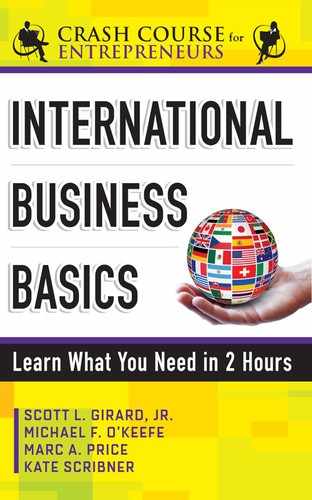Facts and Rules
Expanding your business in international
markets can be very exciting. Ensure
you know the right way to do it.
IT’S AN EXCITING TIME to be in global business, but it can have its challenges. One of them is that each country or trade zone is governed by its own sets of regulations for conducting business, particularly when importing or exporting products. If you want to do business in another country, you must abide by its rules. Add in the mix of language, culture and geographical influences we all encounter abroad, and it’s a heady cocktail to savor.
Mike O’Keefe and I started a US company a few years back that specialized in outsourcing small motors and related components, as well as large-volume lighting for hotel chains. China was known then for cheap labor in manufacturing, so we started and built our business there. We soon found out that only Chinese citizens can own businesses in China. It is a way for the Chinese government to ensure that the gross domestic product (money made in China) stays in China, in the form of Chinese taxes. We were only allowed to do business with Chinese factories and sourcing specialists in order to make our business work.
Starting out with solid facts and plans
When you start thinking about doing business outside your headquarter country, it’s best to remember a few key tips.
• Doing business abroad will be unlike doing business at home. Don’t take anything for granted.
• As we’ve said, read up about the target country in general, so you have a feel for current events, politics, trends and the economy, geography, history and culture, including its customs and courtesies.
• Educate yourself about your own industry sector in the target country via trade journals, online resources, your government’s commercial attachés.
• Get reliable tax advice. For instance, if you are a US company, no matter where in the world you operate, you must still follow US regulations regarding compliance, financial and legal obligations. You must still pay US taxes, even for revenue from your offices outside the US, as long as you are a company incorporated within the US.
• With all your research complete, draw up a complete business plan and review it with a tax expert and a lawyer familiar with the target country. If your usual attorney is not versed in the area, he can recommend a qualified one.
Scoping out the target country
If you plan to send one of your employees or an official representative abroad to scout and develop business contacts, ensure you’ve done your homework on that person too.
• Will she project a professional, positive image of your company?
• Is she a flexible, resourceful, comfortable traveler?
• Does she speak languages that will be useful?
• Does she have proper travel documents, and have you checked visa requirements?
• Is she competent in her job function so she can develop contacts, interview prospects, collect information, get pricing, give specifications, etc. properly?
• Will she will behave ethically and responsibly while on the assignment? If you are a US company and she commits a crime or violates any business ethics laws while overseas and you didn’t conduct your own background check on her, the US Department of Justice and the Securities and Exchange Commission (never mind the target country) could hold you and your business responsible for her violation.
Going global can be very exciting, but also very confusing, challenging and downright risky. The cost of consulting with an international business attorney and tax advisor will save countless headaches and is merely a fraction of what you could pay if you get into trouble. Stay on the safe side and let experts keep you prepared and advised.
S.G.
